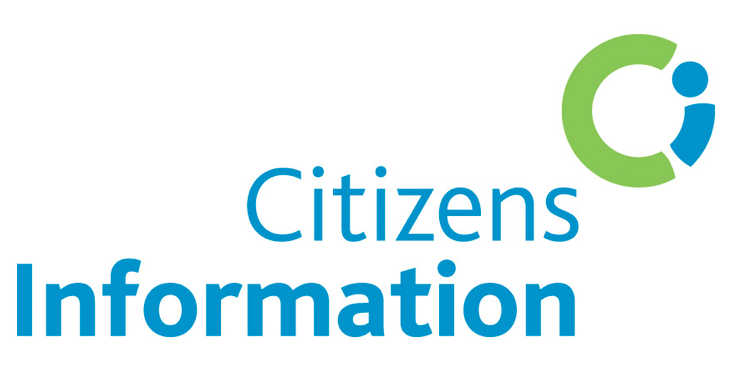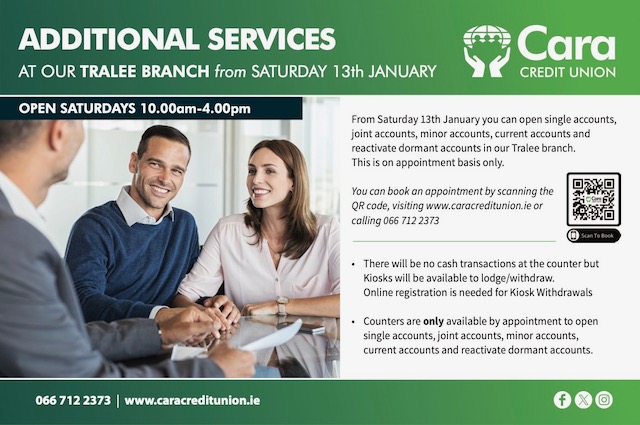
.
 Know Your Rights has been compiled by Kerry Citizens Information Service which provides a free and confidential service to the public…
Know Your Rights has been compiled by Kerry Citizens Information Service which provides a free and confidential service to the public…
Many companies in Ireland offer telephone services for both fixed line and mobile. Each of the providers offer different packages to consumers.
Before entering into a telephone contract, you are advised to think carefully about your needs and compare prices and plans.
ComReg’s price comparison tool allows you to compare mobile phone charges across all operators. It helps you to select the best mobile phone package for you, based on your individual usage.
What is a fixed line contract?
Fixed line is commonly known as your landline or home telephone. A fixed line means that your telephone (or the stand for a cordless telephone) is not wire free but is physically connected to a point on a wall in your home.
Many providers now offer fixed line services as part of a package (also known as a ‘bundle’) along with home internet, and sometimes TV.
Continued below…
What contracts are offered by mobile network providers?
Mobile network providers offer a range of plans (with or without a new phone) that includes a certain amount of calls to other mobiles or landlines, text messages and data (this allows you to use internet while not connected to WIFI).
There are 2 main plans that mobile phone providers offer:
Prepay: This is a pay-as-you-go option where you buy credit from various outlets such as shops, bank machines and online and top up your phone when you need to.
Some providers offer prepay options that include calls, texts and data. You don’t need to sign to a contract and are free to switch networks at any time.
Bill pay: This means that you get a monthly bill for the services you have used in the previous month and will pay a set price. The duration of the contract will usually be either month-to-month or 12 to 24 months.
If you go above your allowance of calls, texts and data you will have to pay extra. When you enter into a bill pay contract, your contract is with the mobile network provider.
Bill pay plans usually give you the option to either buy a phone outright or buy it (either free or at a significantly lower price) as part of a bundle. There is also the option of a SIM-only plan where you don’t need a new phone and simply sign up to a monthly bill pay contract for calls, texts and data.
What’s usually included in my plan?
This depends on the plan and provider but generally your plan includes:
• A certain amount of free national calls
• A certain amount of calls to particular networks
• An allowance for SMS (text message)
• An allowance for data usage (usually measured in gigabytes or GB)
Can the cost of my mobile or broadband package increase mid contract?
Many of the State’s leading telecom operators link the price of their mobile and broadband packages to inflation, with increases of 3 per cent plus the Consumer Price Index (CPI) rate of inflation rolled out each year.
These increases are usually applied in April each year. The increases are outlined in the terms & condition of your contract and consequently are not considered to be a breach of contract by the provider.
Continued below…
What is roaming?
Roaming is using your mobile phone while abroad. EU regulations mean that mobile phone customers are charged the same price for calls, texts and data when travelling in the European Economic Area (EEA), which include all European Union countries plus Norway, Iceland and Liechtenstein.
You should be aware that you may still be charged roaming rates for international travel outside the EEA.
What is the impact of Brexit on roaming charges when travelling to UK?
Since 1 January 2021, you are no longer entitled to the same roaming rates under EU law when travelling to the UK.
You should contact your provider to check the up-to-date prices that apply and what mobile allowances apply when travelling in the UK. ComReg has more information about the impact of Brexit on mobile roaming.
What information should I get when I sign up to a contract?
Providers of fixed or mobile services must give you the following information in your contract:
• The name and address of the service provider
• Details of the service to be provided, the quality levels and the waiting periods for first-time connections.
• Details of the pricing and charges (tariffs)
• Maintenance service available and if any charges apply.
• The duration of the contract and how to renew or cancel it
• Your right to compensation or refund if service quality levels are not met.
• Details of the complaint handling procedure
When you sign up to a new contract, you can only be bound to the contract for an initial minimum period of 24 months (2 years) or less.
You can keep your existing landline or mobile phone number when switching to a new provider. Once the contract has been agreed, the number should be activated within a few hours.
Can I cancel my phone contract?
You should check the terms and conditions of your contract to find out what your cancellation rights are. You may have to pay a fee to cancel a contract. Your legal right to cancel the contract for free depends on whether you signed up over the phone, in person, or online.
If you signed up over the phone or online you can cancel the contract if you signed up less than 14 days ago over the phone or online.
This is called a ‘cooling-off’ period. If you have already used the service (for example, you made calls on a phone), you are likely to be charged for what you have used. If you are waiting for a good such as a mobile phone to be delivered, the cooling off period starts the day you receive it.
This is to allow you time to check if the phone is what you paid for. If you cancel outside of the cooling off period, you may be charged a penalty fee or have to pay off the rest of your contract. Check the terms and conditions of your contract.
However, you don’t have the legal right to a 14-day cooling-off period if you signed up in person, for example you met a salesperson and signed the contract in the shop premises.
Any costs and charges for cancelling your contract should be made clear in your contract and at the point of sale.
What should I consider if I am switching providers?
Before switching providers, you should check your previous bills to review how many minutes and texts you use and how much data you will need.
When comparing providers and plans, you should think about:
• Discount schemes
• Minimum contract period
• Penalties for ending the contract early
• Charges and fees (can include connection charges, monthly rental fees, call costs, disconnection and reconnection charges)
• Price options
• Number portability
For mobile contracts, also think about:
• Network coverage
• Roaming for travel abroad
ComReg’s price comparison tool allows you to compare mobile phone charges across all operators. It helps you to select the optimum mobile phone package, based on your individual usage.
Before you switch, you should contact your existing provider to check if any cancellation period or penalties apply. You will probably need your Universal Account Number (UAN) to switch. This is usually displayed on your bill, but if you can’t find it you should ask your existing provider.
Are calls to Non Geographic Numbers (NGNs) such as 1800 or 0818 more expensive?
Calls to 1800 numbers are free. Calls to 0818 numbers still cost the same as calls to landline numbers.
You can read more about changes to non-geographic numbers on the ComReg website or watch this video about the changes.
Further information
ComReg has detailed information on a range of topics about home and mobile phone contracts. The contact number is 01 804 9668 or email consumerline@comreg.ie
The Competition and Consumer Protection Commission (CCPC) has more advice about mobile phones contracts. Their number is 01 402 5555
• If you need further information about any of the issues raised here or you have other questions, you can drop-in to your local Citizens Information Service in Tralee, Killarney or Caherciveen – opening hours are listed on our website www.citizensinformation.ie
You can also contact us by telephone or email:
Tralee Tel: 0818 07 7860 Email: tralee@citinfo.ie
Killarney Tel: 0818 07 7820 Email: Killarney@citinfo.ie
Caherciveen Tel: 0818 07 7780 Email: caherciveen@citinfo.ie
………………………………………………………………………………………………………………………………………………………………………………………………………………………………………………………………………………………………………………………………………………………………………………………………………………………………………………………………………………………………………………………………………














